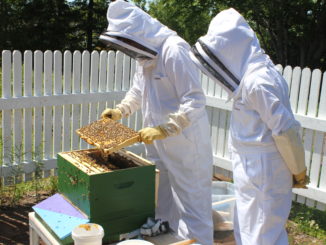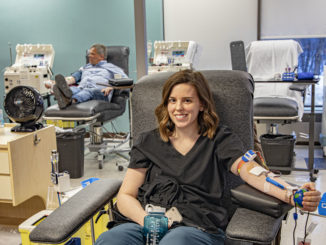Eating a balanced meal has become a rarity, says a local nutritionist.

Before the pandemic raged, a $100 grocery haul could fill up the shopping cart with fresh fruits, vegetables, meat and other kitchen essentials to sustain an average family for a week.
Today, it might only stretch enough to cover the basics for a single person.
In times when pockets get shallow, resorting to canned and packaged food has become an option as they often come with a smaller price tag.
Stacey Tuttle, a St. John’s nutritionist who specializes in gut and hormonal health, says she sees a gap in people’s nutrition, particularly because they don’t eat a balanced meal.
Protein and fibre sources are crucial, Tuttle says, and they can be found in several cheap food items, too.
Some staple affordable food options can be added, says Tuttle, in regular diets such as tofu, frozen edamame, beans (dried or canned) can go a long way and not break the bank.
“Don’t forget frozen veggies,” she said. “They can be (as) equally nutritious as fresh veggies; sometimes even more because they’re frozen at their peak ripeness.”
But for some people, the experience of grocery shopping or meal planning can become a bigger challenge when paired with diet restrictions.
After getting diagnosed with celiac disease, retired senior Deborah Furlong has maintained a gluten-free diet for the last 12 years.
“I knew I had to take my gas money to be able to buy them.”
Deborah Furlong
So when she was recently at a local grocery store and things she could eat were significantly marked down, she bought in bulk. But, she said, it came at a price.
“I knew I had to take my gas money to be able to buy them,” said Furlong, “I had to sacrifice one to get the other.”
Furlong remembers a time when $10 was just enough to buy groceries to make a meal for her family of four which would also include protein.
But now that’s far from reality.
“I can barely get a sandwich or a wrap with that money today,” said Furlong.
Tuttle has seen the impacts of increasing prices.
She says more people are comfortable with canned food these days, although for those who have blood pressure or heart problems, it affects their health in the long run.
Understanding one’s food and diet, says Tuttle, is frequently brushed aside until a health issue arises.
“It’s not about what tastes best anymore, it’s about what fits the budget.”
Deborah Furlong
According to Tuttle, adding food rich in iron that support the liver is a better alternative than cutting down all packaged food, which can be both costly and time-consuming for shoppers. The liver is able to remove toxins to an extent that may be present in packaged food.
For Furlong, meal-planning and preparation comes without a choice.
Despite being gluten-free for over a decade, she says having to budget for meals can be exhausting.
“I don’t know what it’s like to travel like I used to, or go to the movies,” said Furlong.
She spends much of her time surfing the net looking for the best deals.
“It’s not about what tastes best anymore, it’s about what fits the budget.”




Be the first to comment